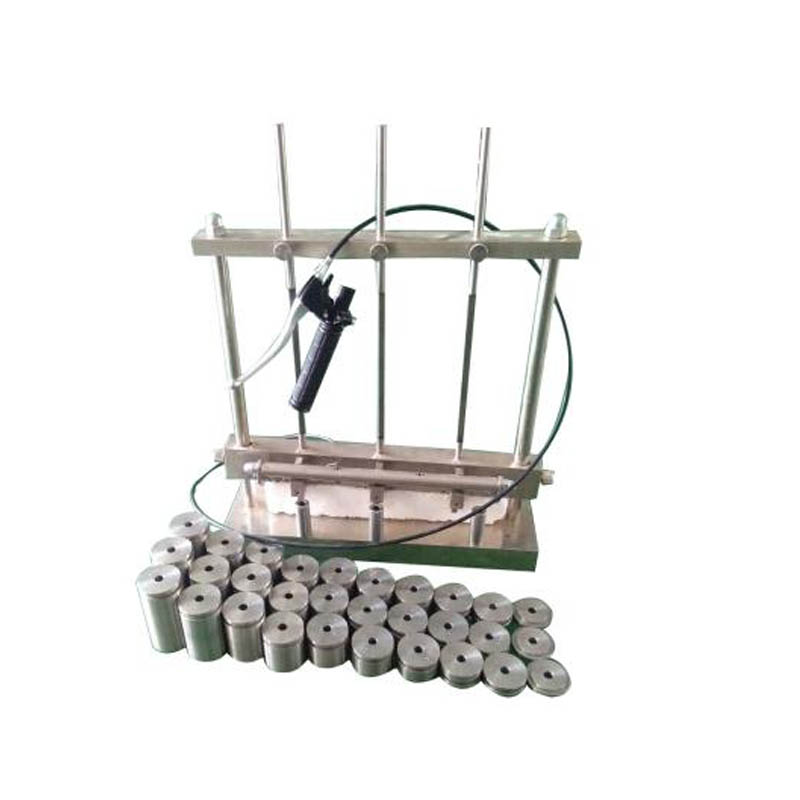Cable Hot Set Testing Manufacturer | High-Quality Cable Testing Solutions
Cable Hot Set Testing An Overview of Manufacturers and Best Practices
In the field of electrical engineering, ensuring the durability and reliability of cable materials is crucial for safety and performance. One of the most effective methods for testing the thermal properties and mechanical integrity of cable insulation is the hot set test. This specialized testing procedure is typically conducted by manufacturers who specialize in cables and electrical components. This article explores the hot set testing process, its significance, and key manufacturers in the industry.
Understanding Cable Hot Set Testing
Cable hot set testing is designed to evaluate how well a cable's insulation can withstand high temperatures. During the process, a sample of the cable insulation is subjected to elevated temperatures for a specified duration. The test aims to assess the material’s ability to maintain its original dimensions and structural integrity after being exposed to heat. This is particularly critical for cables used in environments where high temperatures can cause insulation to deform, which may lead to electrical failures or safety hazards.
The test involves heating the cable samples to a predetermined temperature, usually above the material's service temperature, for a set period. After the heating phase, the samples are allowed to cool, and measurements are taken to determine any changes in the dimensions. A minimal change indicates that the insulation material has good thermal resistance and stability, essential for applications in various industries, including utilities, telecommunications, and automotive.
Importance of Hot Set Testing
The importance of hot set testing cannot be overstated. For manufacturers and consumers alike, this testing provides assurance that cables will perform reliably under extreme conditions. As electric power demand continues to grow, and the prevalence of renewable energy sources increases, ensuring that electrical cables can handle high temperatures without performance degradation is paramount.
cable hot set testing manufacturer

Additionally, regulatory bodies often require compliance with specific testing protocols to ensure safety and reliability standards are met. By adhering to these standards through rigorous hot set testing, manufacturers can avoid costly recalls and liability issues, bolstering consumer trust and brand reputation.
Leading Manufacturers in Hot Set Testing
Several manufacturers are renowned for their reliability in cable hot set testing. Companies like Prysmian Group, Nexans, and Southwire are industry leaders that invest in advanced testing technologies to ensure the highest quality products. These manufacturers offer a range of cables suited for various applications, and each features state-of-the-art testing facilities equipped for comprehensive assessments, including hot set testing.
These manufacturers prioritize not only the production of high-quality cables but also the extensive testing processes that verify the durability and safety of their products. Additionally, they often develop customized solutions tailored to the specific needs of their clients, providing a more reliable end product.
Conclusion
In conclusion, cable hot set testing is a vital procedure in ensuring the reliability and safety of electrical cables. It assesses the thermal stability of insulation materials under high-temperature conditions, highlighting the importance of this testing phase for manufacturers. Recognized leaders in the field, such as Prysmian Group, Nexans, and Southwire, employ rigorous hot set testing to produce cables that meet stringent safety and performance standards. As industries evolve and the demand for robust electrical solutions grows, the role of reliable manufacturers who prioritize thorough testing will remain indispensable.
-
Why the Conductor Resistance Constant Temperature Measurement Machine Redefines Precision
NewsJun.20,2025
-
Reliable Testing Starts Here: Why the High Insulation Resistance Measuring Instrument Is a Must-Have
NewsJun.20,2025
-
Flexible Cable Flexing Test Equipment: The Precision Standard for Cable Durability and Performance Testing
NewsJun.20,2025
-
Digital Measurement Projector: Precision Visualization for Modern Manufacturing
NewsJun.20,2025
-
Computer Control Electronic Tensile Tester: Precision and Power for the Modern Metal Industry
NewsJun.20,2025
-
Cable Spark Tester: Your Ultimate Insulation Assurance for Wire and Cable Testing
NewsJun.20,2025
 Copyright © 2025 Hebei Fangyuan Instrument & Equipment Co.,Ltd. All Rights Reserved. Sitemap | Privacy Policy
Copyright © 2025 Hebei Fangyuan Instrument & Equipment Co.,Ltd. All Rights Reserved. Sitemap | Privacy Policy
